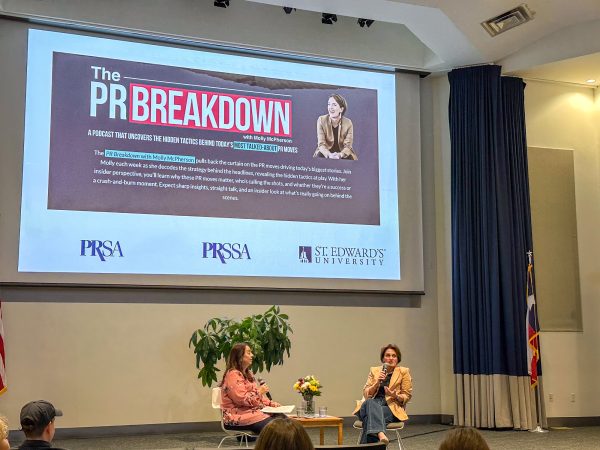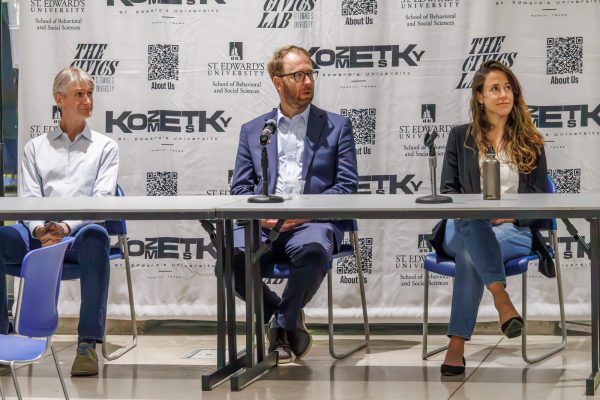New students get adjusted aid while cost of attendance rises
University’s scholarship distribution method leaves current students fearful
Students are opting to graduate early, in three years, due to financial hardships. “The financial aid that is offered doesn’t compensate for rising costs,” said one student.
The increasing cost of attendance is no secret among students and families, and the university offers different merit scholarships and financial aid for incoming freshman. St. Edward’s is offering the newest incoming class for the 2019-2020 school year higher amounts in scholarships than any students before them. Tuition alone will have increased almost $6,300 since 2016.
However, increases in scholarship amounts are only offered to incoming students, not current students who were previously awarded those same scholarships.
Drew Nichols, Director of Freshmen Admission, said this is because these scholarships are “meant to be an award for your high school work so it wouldn’t make sense necessarily for us to go back and retroactively award students one, two, three years later for work they would have done in high school.”
Tuition increases and scholarships increase, and the university is still, according to Nichols, “covering… the same amount [of cost of attendance] in terms of need and merit.”
Many students who didn’t do as well in high school but are now excelling in academics and leadership are wondering what can be done to offset the increasing costs.
“There’s currently not a merit scholarship for continuing students, all merit scholarships are offered at the time of admission,” said Jennifer Beck, Director of Student Financial Aid.
This hasn’t always been true. In Fall 2016, the Faculty Scholarship was offered to current students as “an opportunity for full-time undergraduates to be recognized by the university for their outstanding academic achievements.” The award was around $1,000 and is no longer be offered to students.
Junior Yeji Kang, who did not receive any merit-based scholarships and relies on financial aid, said, “[The aid] offered doesn’t compensate for rising costs… That’s why I’m graduating early, in three years; because one: less money and two: I don’t get any other scholarships.”
However, affordability is something both Beck and Nichols said is a priority for the administration, and they both agreed that offering merit-based scholarships for current students would be a good idea for the university.
“I think you always want to keep your best and brightest,” Beck said.
Although there is no official timeline for when the administration would introduce these scholarships to current students, students like Kang don’t believe it will happen before she graduates.
“I think they said something about it at the presidents meeting, they’re like ‘Oh well we’re working on something,’ but I’m about to graduate and I need that money,” Kang said.
Some possible alternatives to offering scholarships to current students include fixed tuition for each incoming class and guaranteeing a percentage of costs covered throughout your time at the university. However, it is unclear exactly what the administration is considering.









